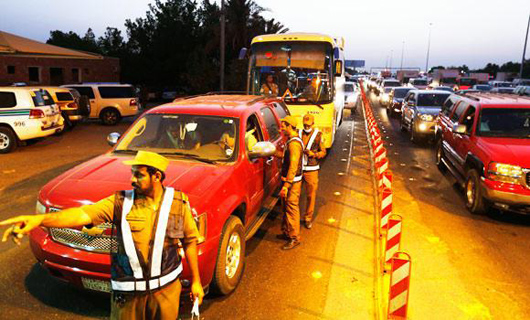
Jeddah, Sep 30: Security forces have barred 98,000 people from entering Makkah because they did not have Haj permits, the Interior Ministry said in a statement on Monday. The authorities did not allow 25,216 vehicles to enter the holy sites because they were not licensed to carry pilgrims.
Police seized 85 vehicles for violating other Haj-related regulations.
Drivers of utility vehicles carrying water and essential commodities, and pilgrim buses, were required to leave Makkah as soon as they completed their tasks.
Authorities introduced the ban on vehicles to reduce bottlenecks and allow pilgrims to walk freely at the holy sites, a source said.
Makkah Gov. Prince Mishaal bin Abdullah inspected the Shumaisi checkpoint and checked the operations at other major entry points to the holy city.
Director General of Traffic Maj. Gen. Abdul Rahman Al-Muqbel gave a detailed presentation of the technology being used to check the permits of vehicles entering Makkah, the source said.
Random fingerprinting last year reportedly uncovered about 4,000 expatriates who tried to enter Makkah without Haj permits. They were deported and banned for 10 years. Their Saudi drivers were imprisoned and had their cars confiscated.




Comments
Add new comment